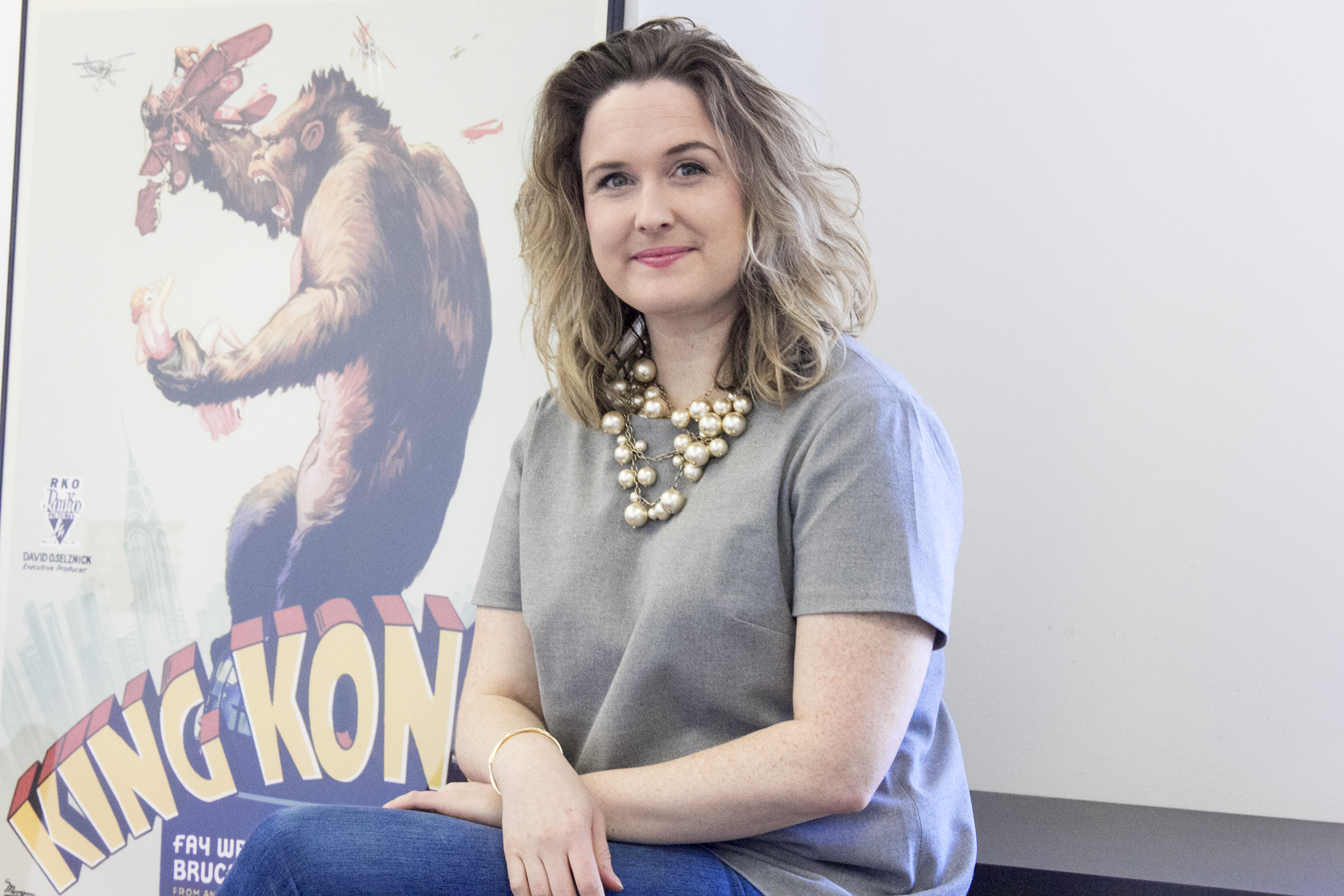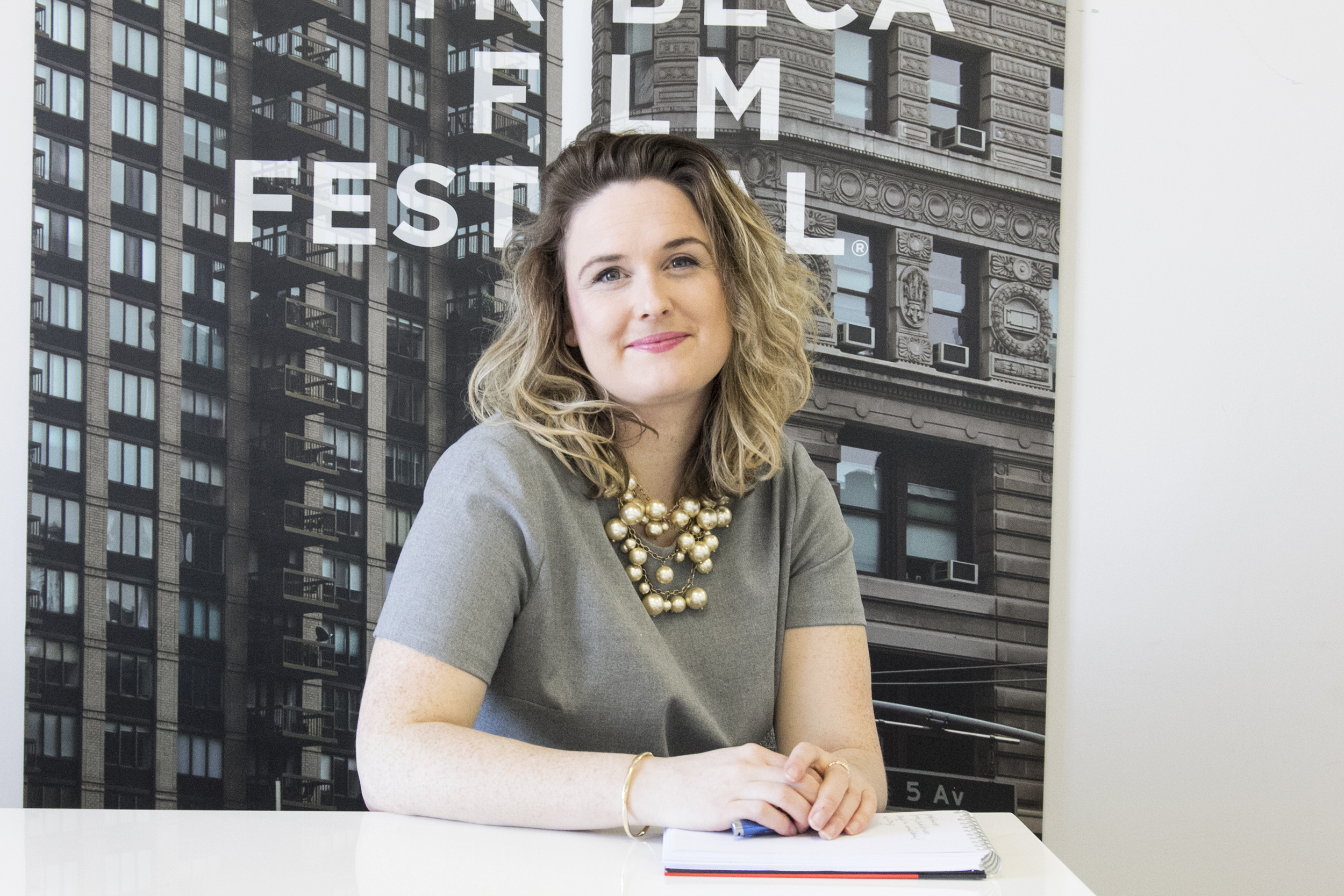Creativity isn’t something that can be switched on and off—that’s why when you work in a creative field, the boundaries between work and play slowly start to blur and one fast becomes the other. I vividly remember watching Beach House’s Victoria Legrand on the stage at the Roundhouse in London, completely consumed and lost in her own sense of self. It serves to this day as motivation to really live and breathe the work that I do, to make it a holistic process rather than relent to the ‘daily grind’ all for the sake of a pay cheque. Cara Cusumano can relate. In her tenth year with the Tribeca Film Festival, the cultural event founded by Robert De Niro, Jane Rosenthal and Craig Hatkoffby, she’s worked her way up the “programming totem pole” to Director of Programming, a job that she cares deeply and passionately about: “I’m not sure I’d be very good at a job that I didn’t feel was so intrinsically connected to who I am,” she explains.
Figuring out what it is that you’re committed to may be easier said than done, but if you drop the standards and expectations of living your dream life, whatever that looks like to you, you might discover that your intuition alone is powerful enough to lead you to your truth. For Cara, the path was illuminated from the offset—she graduated in 2007 and went straight into a programming role at the Hamptons International Film Festival before screening for the Tribeca. “I eventually had to become a one-festival girl,” she says of the time she spent straddling both roles. Ten years in and still Cara oozes enthusiasm when she talks about her chosen career path: “I am extremely lucky that there’s an actual job where you get to travel to film festivals and watch exciting new films before everyone else and be able to champion them.” Intrigued? Read on to find out the challenges Cara faced to get her where she is and how she sees herself evolving with the artistic and creative direction the work she pioneers is taking.
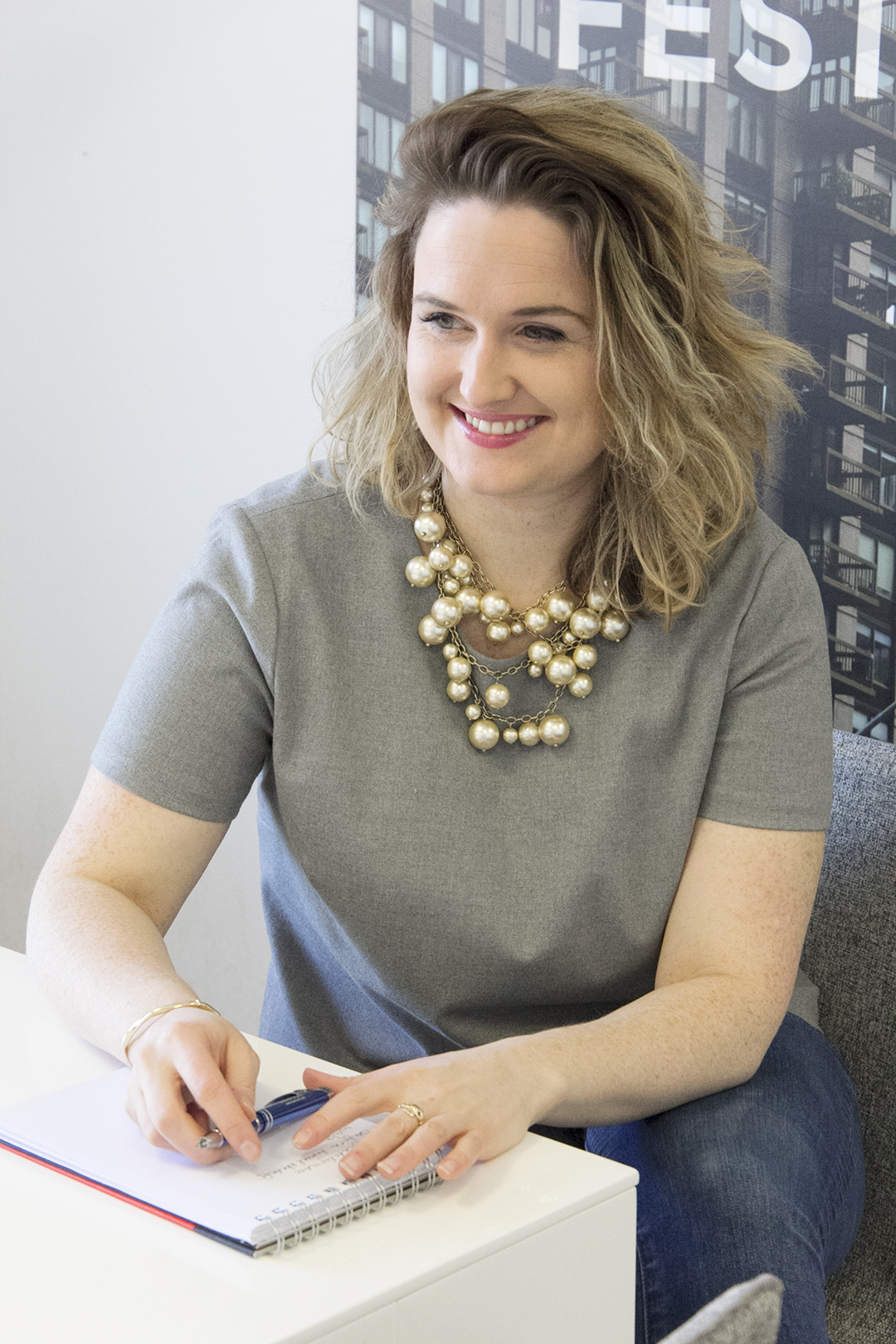 GETTING HER START IN FILM: When I graduated from grad school in 2007, I had already been programming short films for the Brooklyn International Film Festival, and from there I took a job as a Programming Coordinator for the Hamptons International Film Festival. I ended up staying with HIFF for about 5 years, programming first shorts and then features. During that time, I also started screening for TriBeCa, and for a few years was programming for HIFF in the Fall and TFF in the Spring. But as my role at TriBeCa grew, I eventually had to become a one-festival girl. Learning to be a good programmer is really about experience, so just having done it so many times helps you identify talent and that special something that will really work for a wider audience. I learned to trust my instincts and my taste.
GETTING HER START IN FILM: When I graduated from grad school in 2007, I had already been programming short films for the Brooklyn International Film Festival, and from there I took a job as a Programming Coordinator for the Hamptons International Film Festival. I ended up staying with HIFF for about 5 years, programming first shorts and then features. During that time, I also started screening for TriBeCa, and for a few years was programming for HIFF in the Fall and TFF in the Spring. But as my role at TriBeCa grew, I eventually had to become a one-festival girl. Learning to be a good programmer is really about experience, so just having done it so many times helps you identify talent and that special something that will really work for a wider audience. I learned to trust my instincts and my taste.
HER DECADE-LONG TENURE AT THE TRIBECA FILM FESTIVAL: I have had every job title in the programming totem pole here. I began as a screener for the festival, where I was the very first eyes on submissions and made recommendations about what should move forward for further consideration. After that I was an Assistant Programmer, which was mostly the same, but gave me access to the programming meetings with the larger team so I was able to start listening in on what films they were talking about and how they talked about them. I was then an Associate Programmer, Programmer, and Senior Programmer for a couple years – each time taking on more responsibility in terms of outreach and film tracking, travel to festivals, and just general interaction with the outside world as a voice of the festival, as well as more decision making responsibility. I am extremely lucky that there’s an actual job where you get to travel to film festivals and watch exciting new films before anyone else and be able to champion them. It’s the work itself that inspires me to keep doing it, and the reward of being able to be part of the journey of a film or filmmaker that I really admire.
ON CONTINUING TO GROW IN THE SAME COMPANY: I think it’s important to build relationships with people both inside and outside your company. Outside to learn how other people who have your job do it, and learn about how they work with challenges similar to yours. And inside, to educate yourself about how your company works as a whole ecosystem. When we program the festival, we don’t do it in a vacuum – our decisions affect the publicity department, box office, etc., so understanding how they work and what their priorities are can help you be more skilled at your own job and other roles you go on to have in the company.
ON THE MYTH OF BEING ‘READY’: This is my dream job, I am constantly in awe that there exists a job where you get paid to watch movies, and that I’m fortunate enough to have it. I think we often believe there’s some ideal future threshold of readiness that is actually a fiction, and the reality is at a certain point it becomes more about confidence than further increments of preparedness. And second of all, use the resources around you, collaborate – you don’t have to do it alone. I have an amazing team of programmers working with me, who I can turn to whenever I’m not feeling sure about a particular choice or want more opinions. That doesn’t mean I wasn’t able to do it on my own, it means we can do it better together.
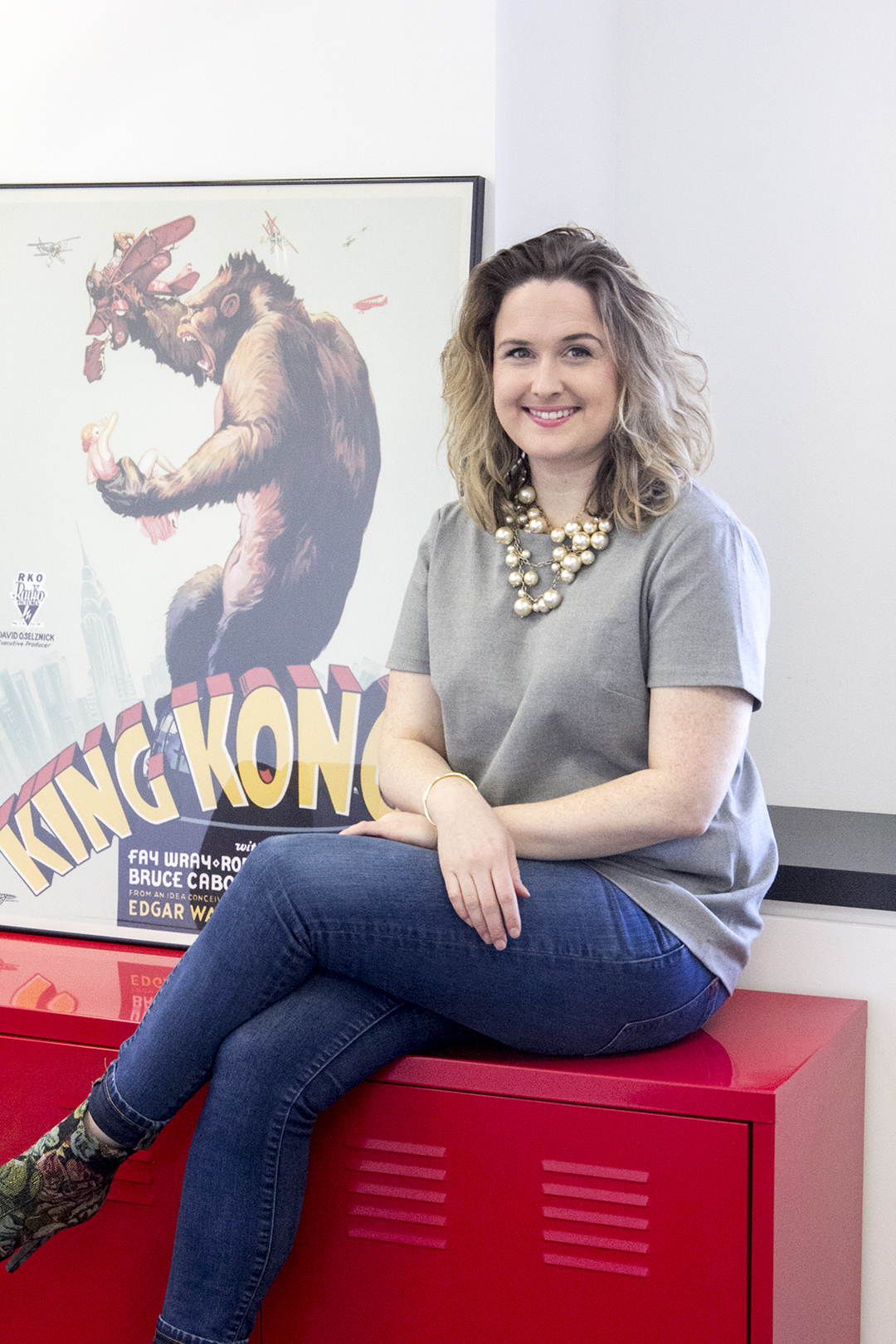 WHY THE TRIBECA FILM FESTIVAL STANDS OUT IN A CROWDED INDUSTRY: TriBeCa is a relatively young festival, and that youthful energy has given us a lot of freedom to experiment with new platforms and modes of storytelling, and keep up with cutting edge filmmakers who are doing the same. We’ve been early adopters of VR, online storytelling, TV, and social media, too. We follow where the most exciting, creative work is taking place and we create a curatorial space to connect that work with eager audiences. The result is that beyond a film festival, we are real storytelling festival as well. I like to think we are less in competition with other festivals and more part of a greater ecosystem that each serve a different complementary purpose. At TriBeCa we have worked to carve out a specialty in innovation – discovering exciting new voices and highlighting cutting-edge platforms. This means we are doing something a little different than other festivals that maybe focus on awards-season releases or best-of-the-fests programming. There are so many amazing films and fewer opportunities for indie audiences to see them.
WHY THE TRIBECA FILM FESTIVAL STANDS OUT IN A CROWDED INDUSTRY: TriBeCa is a relatively young festival, and that youthful energy has given us a lot of freedom to experiment with new platforms and modes of storytelling, and keep up with cutting edge filmmakers who are doing the same. We’ve been early adopters of VR, online storytelling, TV, and social media, too. We follow where the most exciting, creative work is taking place and we create a curatorial space to connect that work with eager audiences. The result is that beyond a film festival, we are real storytelling festival as well. I like to think we are less in competition with other festivals and more part of a greater ecosystem that each serve a different complementary purpose. At TriBeCa we have worked to carve out a specialty in innovation – discovering exciting new voices and highlighting cutting-edge platforms. This means we are doing something a little different than other festivals that maybe focus on awards-season releases or best-of-the-fests programming. There are so many amazing films and fewer opportunities for indie audiences to see them.
HOW THE FESTIVAL HAS CHANGED SINCE SHE STARTED: While film is the bedrock of what the festival does, we increasingly noticed that filmmakers weren’t necessarily just working in film anymore, and the work we admired was taking new and innovative forms including episodic storytelling, virtual reality, web-series, and more. We feel like there’s this tremendous burst of creativity, as well as enthusiastic audiences who want to connect with it, which is the perfect opportunity for a festival to help curate and promote the best work while providing an access point for audiences. As a result, we have diversified the program to include a festival-within-a-festival for these new frontiers in storytelling, including separate sections for VR, online work, and TV. But as much as we broaden the scope of what we platform at the festival, we always maintain a highly curatorial approach. It’s not just more-is-more, we want these programs to be focused celebrations of the best of the best of their respective fields.
THE CREATIVE PROCESS BEHIND THEIR LINE-UP: We received nearly 9,000 submissions for the festival this year, and ended up programming just under 100 features and around 60 shorts so the process of evaluating everything and making those selections is a long and in-depth one. We have a team who each are watching 10-20 films per week, and we begin by meeting regularly and just talking about what we’ve seen and sharing things we liked with each other. After a few meetings, it starts to become clear what films are real contenders and what films are likely not going to be a match for the festival. Our core curatorial point of view is really quality first, so we are just looking for the absolute best work we can find to include. It’s also important to us to champion diversity, discovery, and innovation – we are always looking for someone with a new point of view or a piece of work that genuinely surprises us.
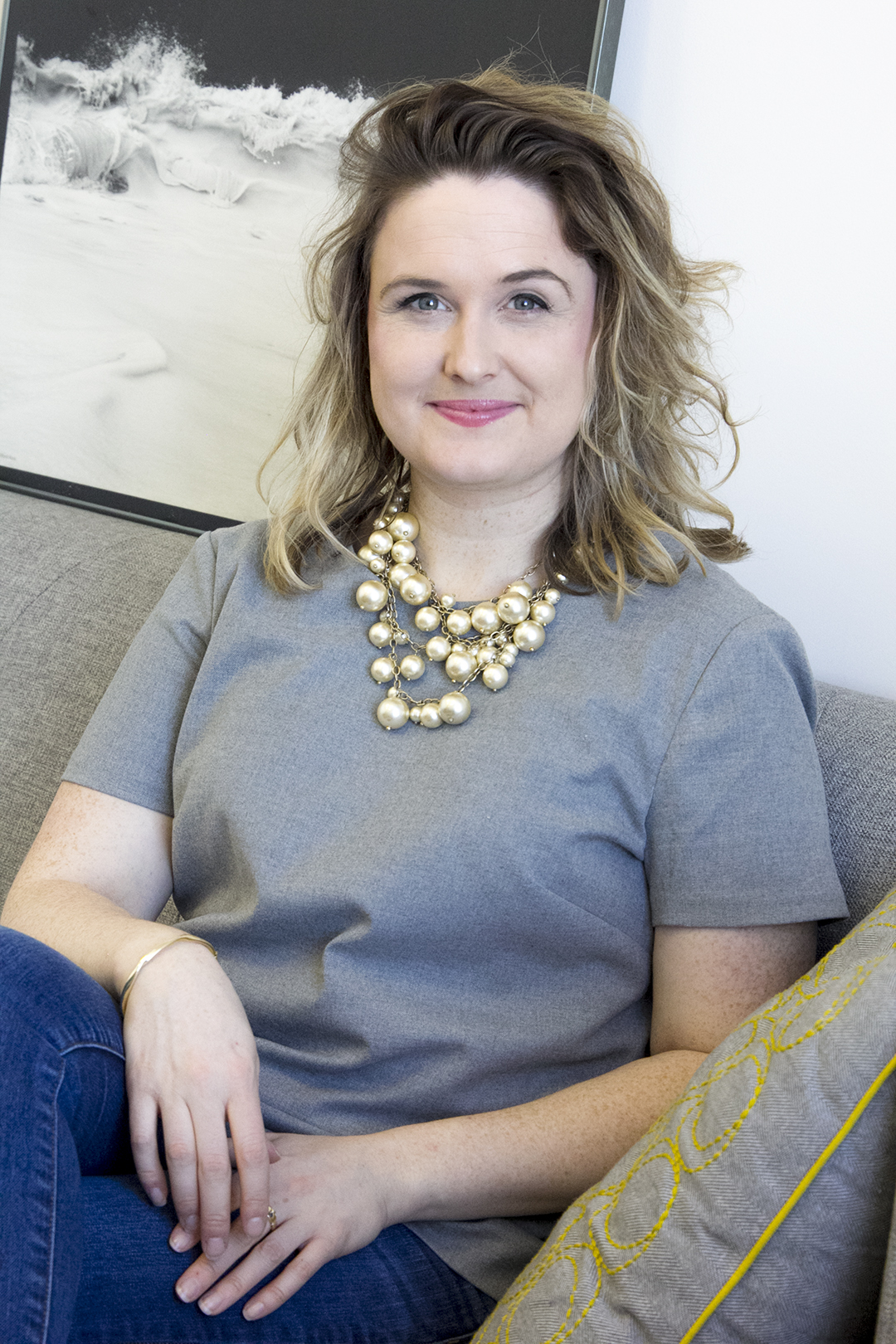 THE HANG-UPS SHE HAD TO OVERCOME TO SUCCEED: I was very quiet and self-contained but it became clear to me that that would be a real liability if this is the work I wanted to do. It’s a job all about relationships, which also happens to involve a lot of public speaking- so shyness just had to go. There’s always an insecurity that I missed something, too. With nearly 9,000 films that were not invited to the festival, the fear that keeps me up at night is the idea that there was something amazing that we just missed. But I think the flipside is that this worry is actually what keeps me thorough and conscientious and open-minded about every new film I put on: this could be the one! There’s no clear path drawn out in how to advance your career in this industry, so the biggest challenges for me are always knowing if the steps I’m taking are the right ones. There’s no way to know until you’ve already made the decision. I’ve had times where I’ve felt paralyzed in the face of big career choices, but I’ve tried to learn to embrace the risk and take the leap, and I think it has paid off.
THE HANG-UPS SHE HAD TO OVERCOME TO SUCCEED: I was very quiet and self-contained but it became clear to me that that would be a real liability if this is the work I wanted to do. It’s a job all about relationships, which also happens to involve a lot of public speaking- so shyness just had to go. There’s always an insecurity that I missed something, too. With nearly 9,000 films that were not invited to the festival, the fear that keeps me up at night is the idea that there was something amazing that we just missed. But I think the flipside is that this worry is actually what keeps me thorough and conscientious and open-minded about every new film I put on: this could be the one! There’s no clear path drawn out in how to advance your career in this industry, so the biggest challenges for me are always knowing if the steps I’m taking are the right ones. There’s no way to know until you’ve already made the decision. I’ve had times where I’ve felt paralyzed in the face of big career choices, but I’ve tried to learn to embrace the risk and take the leap, and I think it has paid off.
WHY SHE HAS NO BOUNDARIES BETWEEN WORK AND PLAY: I came to this work because of my personal passion for film, so there is a lot of connection between my personal and professional lives. I’m not sure I’d be very good at a job that I didn’t feel was so intrinsically connected to who I am. The result is that it can be very all-consuming at the busiest time of year, but I’m lucky to have people in my life who understand how important it is to me, and that the job itself has an ebb and flow which allows other times of the year to be much more open for other interests (though that still seems to usually end up involving watching a lot of movies!).
THE MOST REWARDING PART OF HER JOB: I’m proud of all the films that have graduated Tribeca and gone on to be successful out in the world. Even though we play a small part in their journey, it is hugely rewarding to be able to be a part of projects you feel passionately about at such a key, celebratory moment. I feel like a proud mama at every film premiere.
LIFE MANTRA: Relax. It’s going to be great.

